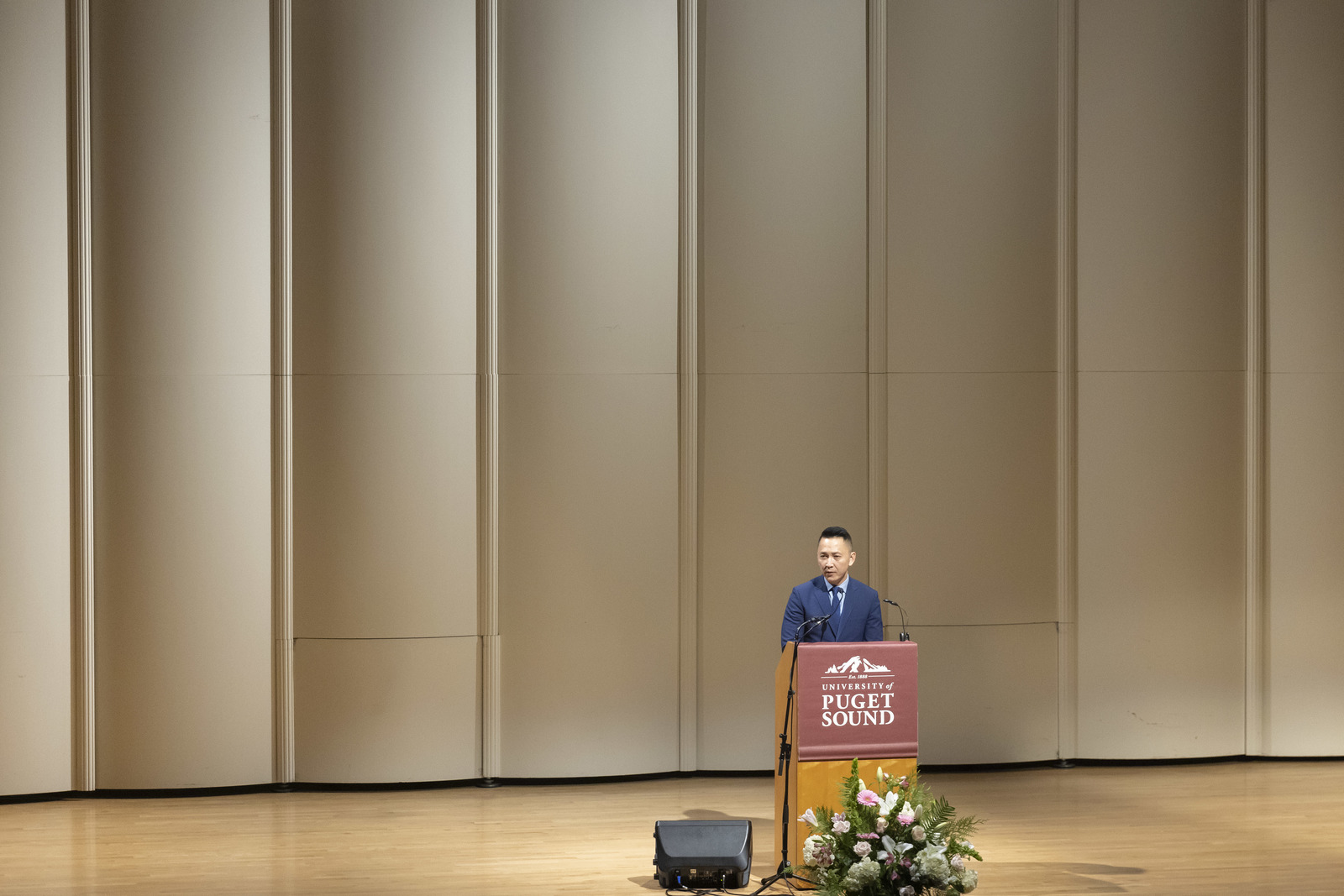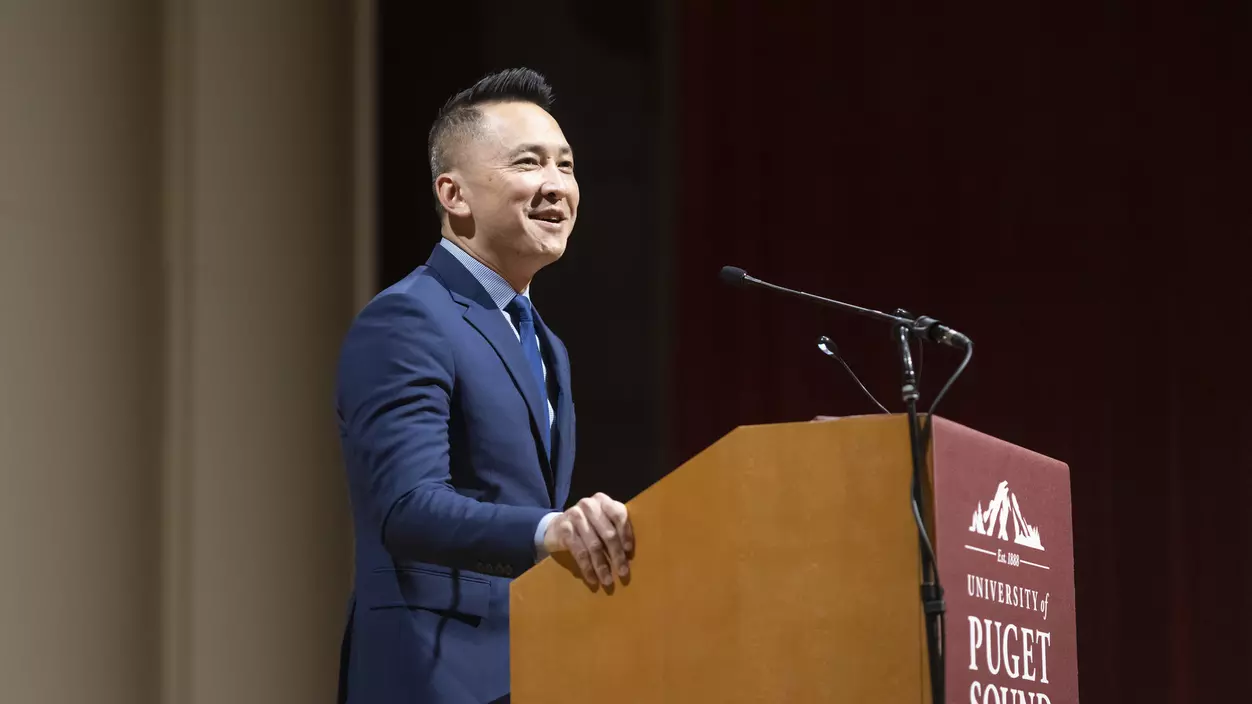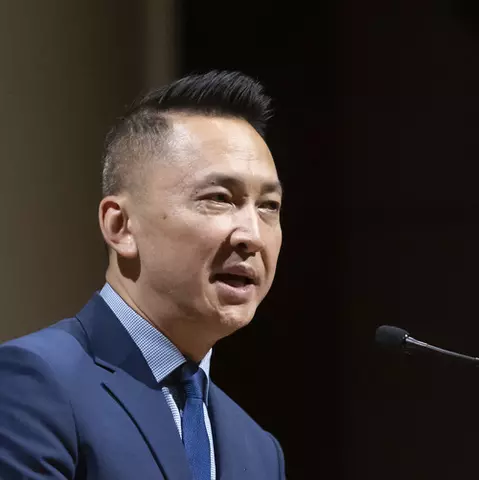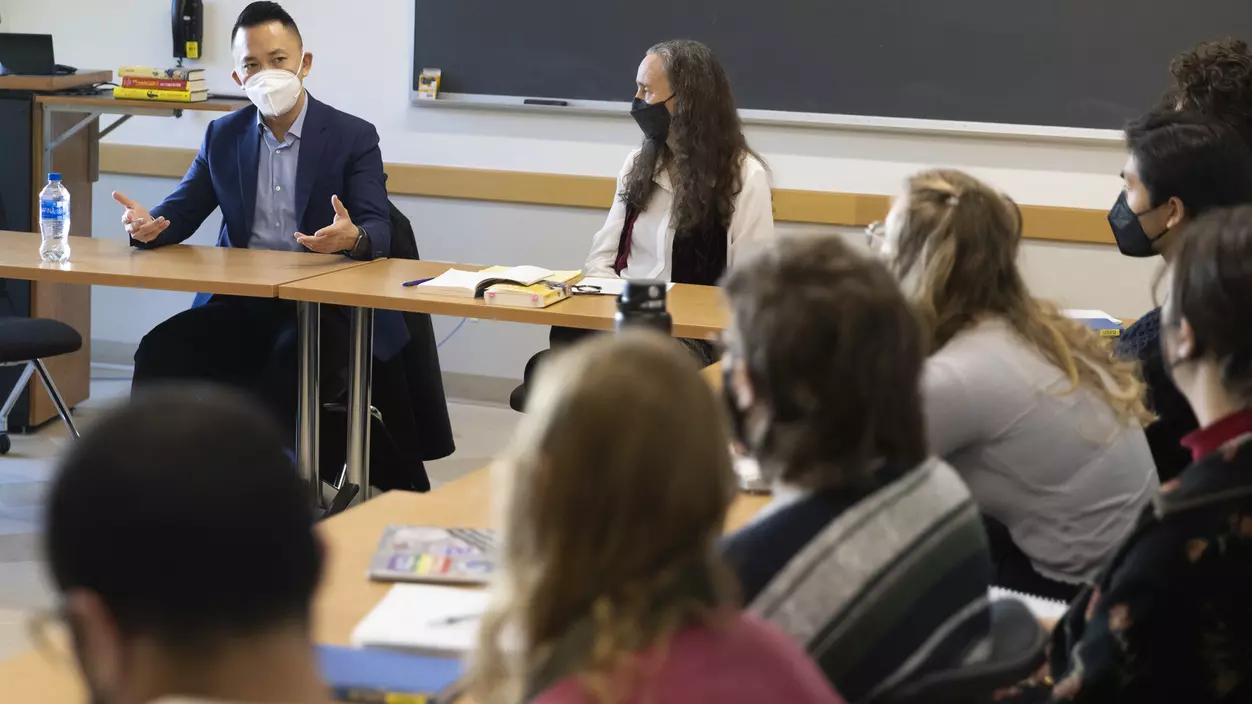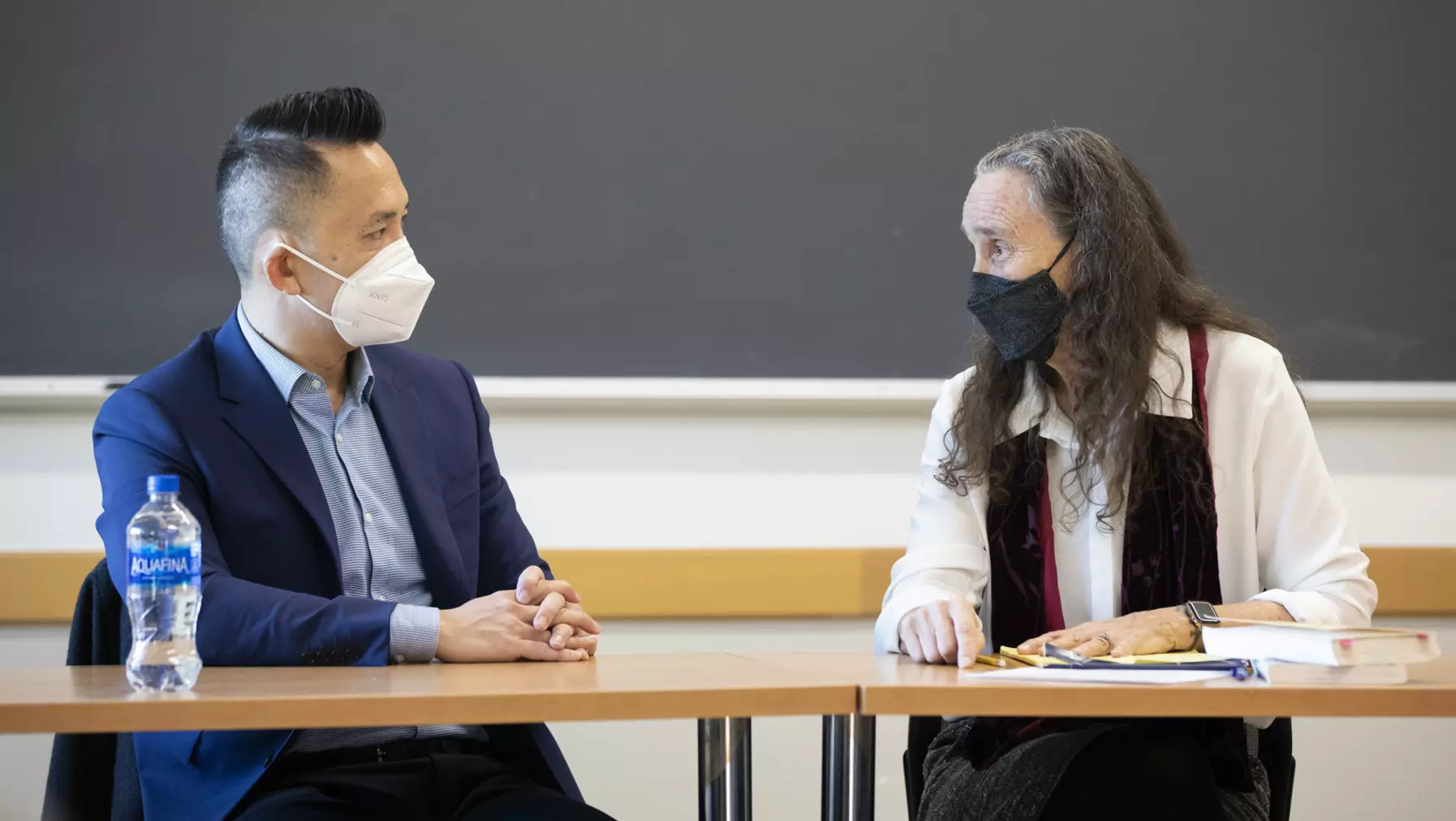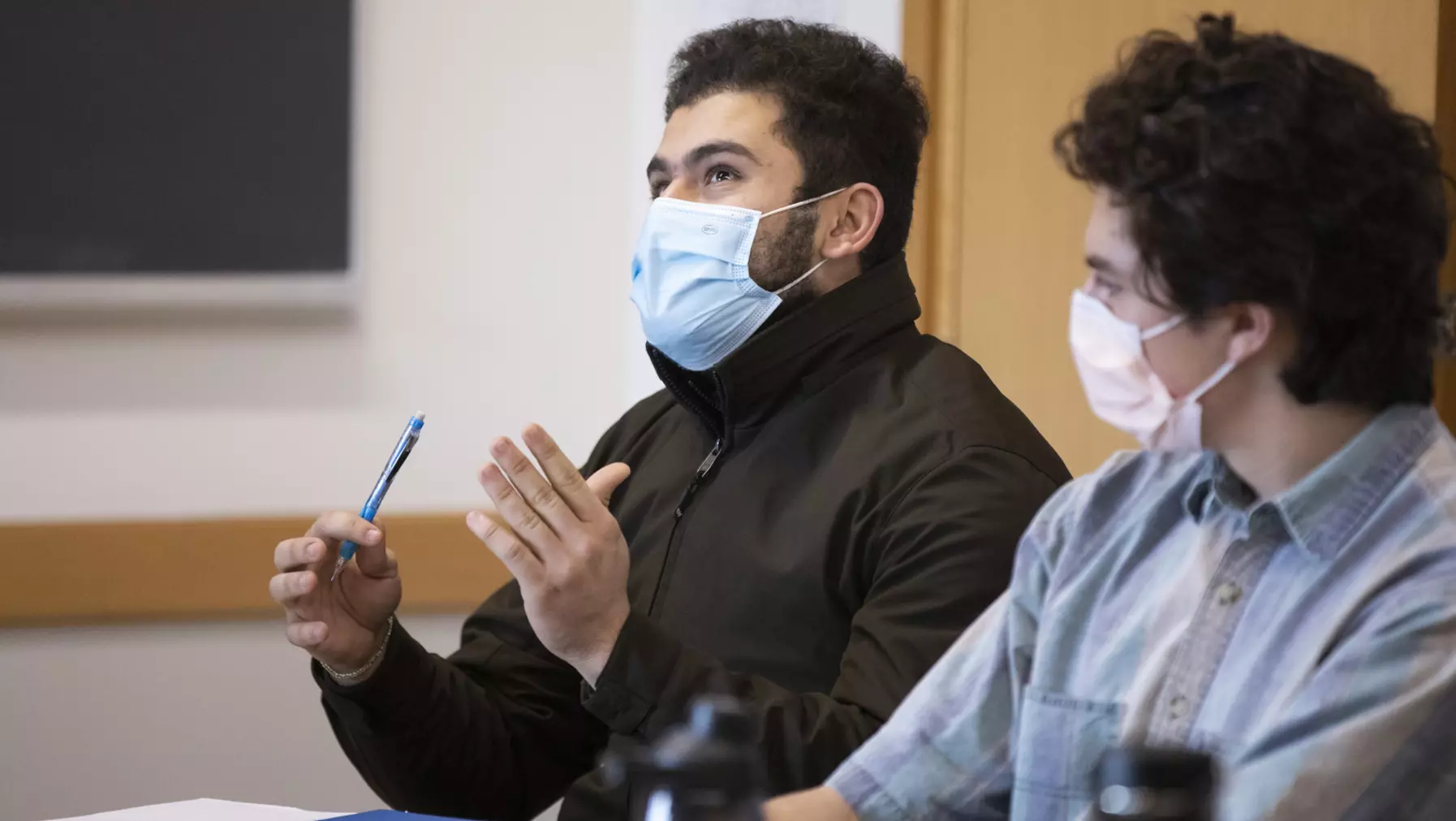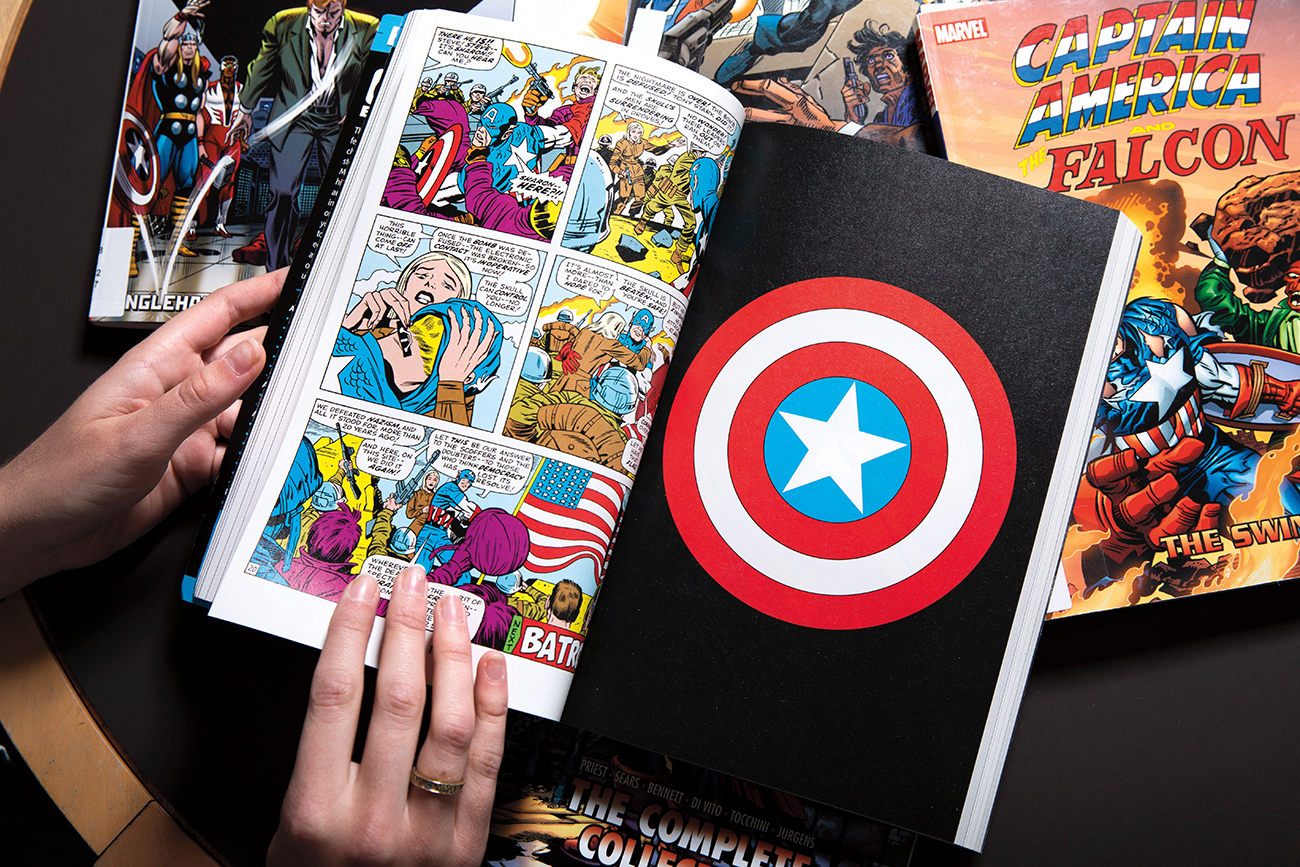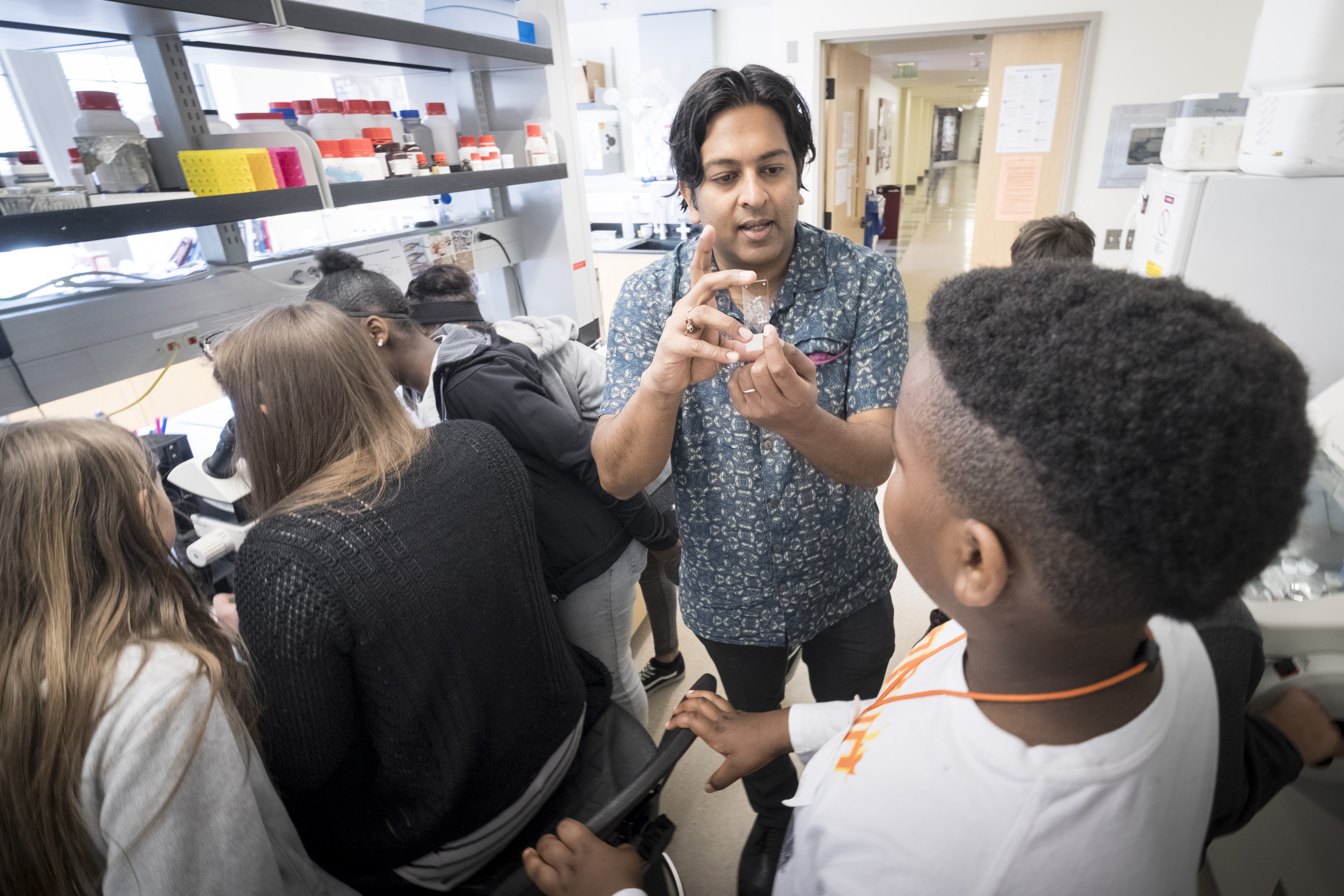The Pulitzer Prize-winning author discusses refugees, language, and the meaning of America
Author Viet Thanh Nguyen’s earliest memories are of being separated from his parents. The hazy recollections of his family’s escape from Vietnam in 1975 and arrival in the United States fuel his work as a writer to reconcile his dual identities as both an American and a refugee. Nguyen spoke this month at University of Puget Sound, where he gave the fall 2021 Susan Resneck Pierce Lecture in Public Affairs and the Arts.
Growing up, Nguyen remembers watching the Vietnam War movie Apocalypse Now and not knowing whether to sympathize with the American protagonists doing the killing or with the Vietnamese extras being killed. The sense that his people’s stories were being erased led him to write short stories, novels, and nonfiction books that center the Vietnamese experience in all of its complexity, with a focus on stories of the diaspora in America.
